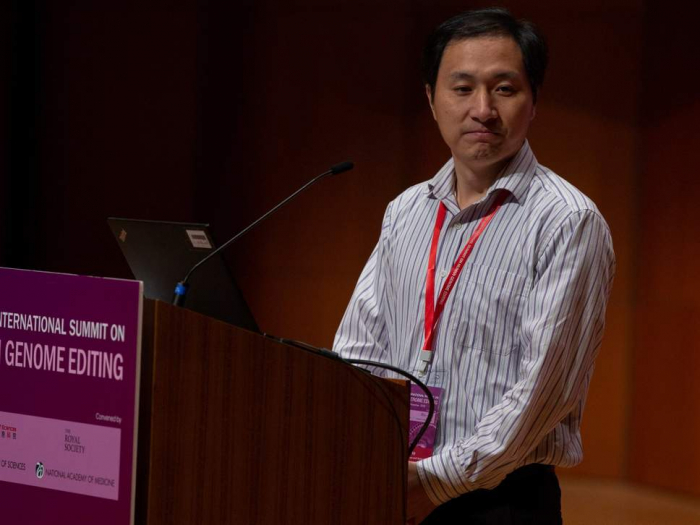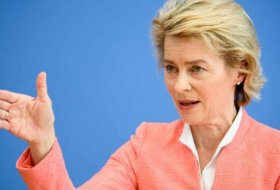The Chinese scientist responsible for the programme found himself at the centre of an ethics debate over what he claims are the world's first genetically edited babies.
He Jiankui, an associate professor at Southern University of Science and Technology in Shenzhen, China, had used gene-editing technology known as CRISPR-Cas9 to alter the embryonic genes of twin girls born this month.
The process allows scientists to essentially cut and paste DNA, raising hope of genetic fixes for disease and Mr Jiankui said the gene editing would help protect the girls from infection with HIV.
There is not yet independent confirmation of his claim, but scientists and regulators have been swift to condemn the experiment as unethical and unscientific.
The Chinese government denounced the work and a hospital linked to his research suggested its ethical approval had been forged.
More than 100 scientists, most in China, said in an open letter the use of CRISPR-Cas9 technology to edit the genes of human embryos was dangerous and unjustified.
Following the widespread outrage the work has now been stopped.
"I must apologise this result was leaked unexpectedly. The clinical trial was paused due to the current situation," he said at the Human Genome Editing Summit at the University of Hong Kong.
Mr Jiankui said his work was self-funded and shrugged off concerns that the research was conducted in secrecy, explaining that he had engaged the scientific community over the past three years.
He said he practised editing mice, monkey and human embryos in the lab for several years and has applied for patents on his methods.
Mr Jiankui initially said he was proud of the work and added that a second volunteer was pregnant.
"For this case, I feel proud. I feel proudest," He said, when challenged by several peers at the conference.
"This study has been submitted to a scientific journal for review," he said. He did not name the journal and said his university was unaware of his study.
A leader of an international conference on gene editing said the work showed a failure of self-regulation among scientists.
Nobel laureate David Baltimore said the work would "be considered irresponsible" because it did not meet criteria many scientists agreed on several years ago before gene editing could be considered.
Mr Baltimore spoke at an international conference in Hong Kong, where the Chinese scientist, Mr Jiankui, made his first public comments since his work was revealed.
He added that he did not think it was medically necessary and that the case showed "there has been a failure of self-regulation by the scientific community".
The Independent
More about: Gene
















































